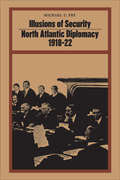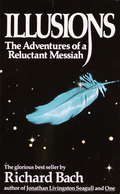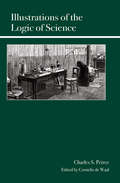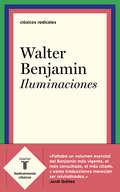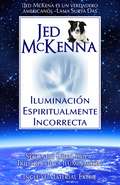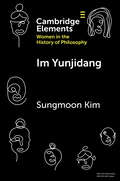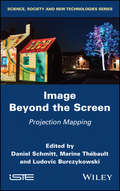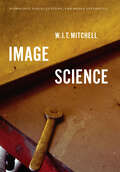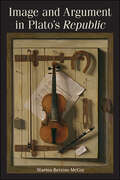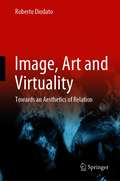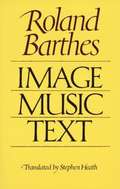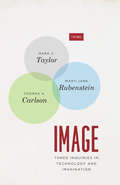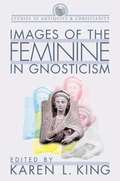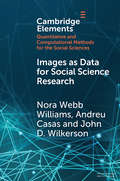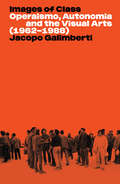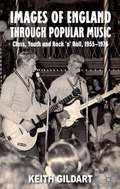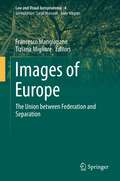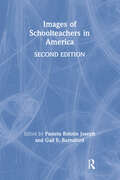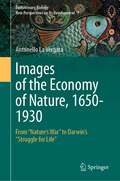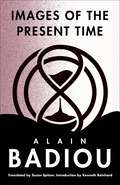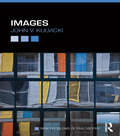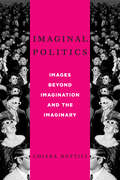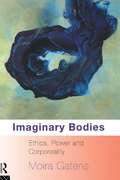- Table View
- List View
Illusions of Security: North Atlantic Diplomacy 1918-22
by Michael FryThe First World War was in many ways the most formative experience for the western world in the twentieth century. Little if anything of importance escaped its influence. For those who helped shape foreign and deference policies in Britain, the United States, and Canada, the war and the consequent peacemaking raised perplexing political, ideological, and racial problems. In their search for solutions, some among the anglophone elites of these three countries arrived at the idea of Atlanticism. To them it seemed possible that the British empire and the United States, the core of the victorious allied coalition, could create a global hegemony, an amended version of the Pax Britannica, which might provide a panacea for the ills of the postwar world. As their views became known, the Atlanticists met with some enthusiasm and much outright hostility. Deliberations for and against Atlanticism focused on renewal of the Anglo-Japanese alliance and on two vital postwar conferences, the Imperial Conference of 1921 and the Washington Conference of 1921-2. Initial prospects for Atlanticism seemed encouraging, but hopes were dashed in real political issues of war debts and European recovery by the end of 1922. The Atlanticist thesis languished and despite periods of co-operation it never regained its appeal throughout the interwar years. Michael Fry relates in fascinating detail the history of these deliberations and of the statesmen who worked for and against Atlanticism. His study sheds light on the evolution of foreign policy in Britain, the dominions, and the United States, and yields insights into relations between these governments during an important time in history.
Illusions: The Adventures of a Reluctant Messiah
by Richard BachIn the cloud-washed airspace between the cornfields of Illinois and blue infinity, a man puts his faith in the propeller of his biplane. For disillusioned writer and itinerant barnstormer Richard Bach, belief is as real as a full tank of gas and sparks firing in the cylinders...until he meets Donald Shimoda--former mechanic and self-described messiah who can make wrenches fly and Richard's imagination soar....In Illusions, the unforgettable follow-up to his phenomenal bestseller Jonathan Livingston Seagull, Richard Bach takes to the air to discover the ageless truths that give our souls wings: that people don't need airplanes to soar...that even the darkest clouds have meaning once we lift ourselves above them... and that messiahs can be found in the unlikeliest places--like hay fields, one-traffic-light midwestern towns, and most of all, deep within ourselves.
Illustrations of the Logic of Science
by Cornelis De Waal Charles Sanders PeirceCharles Peirce's Illustrations of the Logic of Science is an early work in the philosophy of science and the official birthplace of pragmatism. It contains Peirce's two most influential papers: "The Fixation of Belief" and "How to Make Our Ideas Clear," as well as discussions on the theory of probability, the ground of induction, the relation between science and religion, and the logic of abduction. Unsatisfied with the result and driven by a constant, almost feverish urge to improve his work, Peirce spent considerable time and effort revising these papers. After the turn of the century these efforts gained significant momentum when Peirce sought to establish his role in the development of pragmatism while distancing himself from the more popular versions that had become current. The present edition brings together the original series as it appeared in Popular Science Monthly and a selection of Peirce's later revisions, many of which remained hidden in the mass of messy manuscripts that were left behind after his death in 1914.
Iluminaciones: Iluminaciones I (Taurus Humanidades Ser. #Vol. 314)
by Walter BenjaminLa primera selección de textos esenciales de Walter Benjamin. Esta es la primera selección que se publica en España de los textos fundamentales de Walter Benjamin, escogidos cuidadosamente a partir de los cuatro volúmenes de Iluminaciones y el de Discursos interrumpidos. Benjamin fue uno de los críticos culturales más originales e indispensables del siglo XX. Este libro incluye, entre otras reflexiones, las que dedica a Kafka, a quien le unía una estrecha afinidad personal, sus estudios sobre Baudelaire, Proust y Brecht, así como su ingenioso (y emblemático) texto «La obra del arte en la era de su reproductibilidad técnica», una discusión esclarecedora de la traducción como modo literario y sus tesis sobre la filosofía de la historia. ------------- radical: adj. Perteneciente o relativo a la raíz. «Clásicos Radicales» nace con la misión de recuperar algunos de los libros más emblemáticos del sello que en su día formularon una idea nueva u ofrecieron una mirada original y pertinente sobre las grandes cuestiones universales. Ausentes de las librerías durante demasiado tiempo pero recordados y buscados por los lectores más despiertos, estos textos esenciales de disciplinas como la filosofía, la ética, la historia, la sociología, la economía, la antropología, la psicología y la política mantienen su plena vigencia y vuelven hoy con fuerza para iluminar nuestro presente. ------------- Críticas:«Benjamin fue uno de los grandes escritores europeos de este siglo.»Philip Toynbee, The Observer «Su método característico entrar en un tema en ángulo, avanzar paso a paso de una recapitulación perfectamente lograda a la siguiente es tan instantáneamente reconocible como inimitable, ya que requiere un agudo intelecto, un aprendizaje ligeramente gastado, y un estilo de prosa que, una vez que dejó de pensar en sí mismo como el doctor Benjamin, se convirtió en una maravilla de precisión y concisión.»J.M. Coetzee «Benjamin explicó la modernidad con una autoridad que ni cincuenta años de cambios imprevisibles ha debilitado.»Frank Kermode, The New York Review of Books
Iluminación Espiritualmente Incorrecta
by Jed Mckenna Liliana B. GandugliaLA MARCA DE UN VERDADERO MAESTRO es que sabe expresar un tema de suprema complejidad con una simplicidad fuera de serie. Jed McKenna es un maestro, e iluminado espiritual en el tema. Su primer libro, Spiritual Enlightenmen: TheDamedest Thing, fue un clásico instantáneo y lo ubicó como un maestro espiritual de una profundidad y claridad sorprendentes. Ahora su segundo libro, “Iluminación Espiritualmente Incorrecta”, nos invita a un recorrido fascinante del estado de iluminación –lo qué es y lo qué no es, quién está allí, y quién no, cómo llegar allí y como ser un poco mejor. Abundan deliciosas sorpresas, incluyendo el descubrimiento dramático de quizás la más grande de las obras de arte espirituales de todos los tiempos –escondida desde hace tiempo de la simple vista y bien conocida por todos. Whitman, Melville, Thoreau, Mark Twain y U.G. Krishnamurti todos aparecen, y un alumno del primer libro regresa a compartir sus diarios de Autoanálisis Espiritual. También son sorprendentes los esfuerzos amables del autor para guiar al lector desde la iluminación hacia un estado más deseable y accesible. Fracasas al buscarme al principio, mantente valiente, No me encuentras en un lugar, busca en otro, Estoy en algún lugar detenido, esperando por ti -Walt Whitman- Los libros de Jed Mc Kenna no son para todos. Son para las personas que están cansadas de la calesita espiritual y están preparadas para confrontar la cruda realidad con el proceso de concientización. Si te gustan los maestros con todo ese tipo de guarniciones y adornos, Jed no es indicado para ti, pero cuando estés listo para bajarte del carrusel y comenzar tu viaje, Jed McKenna es el tipo indicado para ver – allí, esperando por ti.
Im Yunjidang (Elements on Women in the History of Philosophy)
by Sungmoon KimThis Element aims to critically examine the philosophical thought of Im Yunjidang 任允摯堂 (1721–93), a female Korean Neo-Confucian philosopher from the Chosŏn 朝鮮 dynasty (1392–1910), and to present her as a feminist thinker. Unlike most Korean women of her time, Yunjidang had the exceptional opportunity to be introduced to a major philosophical debate among Korean Neo-Confucians, which was focused on two core questions-whether sages and commoners share the same heart-mind, and whether the natures of human beings and animals are identical. In the course of engaging in this debate, she was able to reformulate Neo-Confucian metaphysics and ethics of moral self-cultivation, culminating in her bold ideas of the moral equality between men and women and the possibility of female sagehood. By proposing a 'stage-approach' to feminism that is also sensitive to the cultural context, this Element shows that Yunjidang's philosophical thought could be best captured in terms of Confucian feminism.
Image Beyond the Screen: Projection Mapping
by Daniel Schmitt Marine Thébault Ludovic BurczykowskiVideomapping with its use of digital images is an audiovisual format that has gained traction with the creative industries. It consists of projecting images onto diverse surfaces, according to their geometric characteristics. It is also synonymous with spatial augmented reality, projection mapping and spatial correspondence. Image Beyond the Screen lays the foundations for a field of interdisciplinary study, encompassing the audiovisual, humanities, and digital creation and technologies. It brings together contributions from researchers, and testimonials from some of the creators, technicians and organizers who now make up the many-faceted community of videomapping. Live entertainment, museum, urban or event planning, cultural heritage, marketing, industry and the medical field are just a few examples of the applications of this media.
Image Science: Iconology, Visual Culture, and Media Aesthetics
by W.J.T. MitchellAlmost thirty years ago, W. J. T. Mitchell's Iconology helped launch the interdisciplinary study of visual media, now a central feature of the humanities. Along with his subsequent Picture Theory and What Do Pictures Want?, Mitchell's now-classic work introduced such ideas as the pictorial turn, the image/picture distinction, the metapicture, and the biopicture. These key concepts imply an approach to images as true objects of investigation--an "image science. " Continuing with this influential line of thought, Image Science gathers Mitchell's most recent essays on media aesthetics, visual culture, and artistic symbolism. The chapters delve into such topics as the physics and biology of images, digital photography and realism, architecture and new media, and the occupation of space in contemporary popular uprisings. The book looks both backward at the emergence of iconology as a field and forward toward what might be possible if image science can indeed approach pictures the same way that empirical sciences approach natural phenomena. Essential for those involved with any aspect of visual media, Image Science is a brilliant call for a method of studying images that overcomes the "two-culture split" between the natural and human sciences.
Image and Argument in Plato's Republic (SUNY series in Ancient Greek Philosophy)
by Marina Berzins McCoyAlthough Plato has long been known as a critic of imagination and its limits, Marina Berzins McCoy explores the extent to which images also play an important, positive role in Plato's philosophical argumentation. She begins by examining the poetic educational context in which Plato is writing and then moves on to the main lines of argument and how they depend upon a variety of uses of the imagination, including paradigms, analogies, models, and myths. McCoy takes up the paradoxical nature of such key metaphysical images as the divided line and cave: on the one hand, the cave and divided line explicitly state problems with images and the visible realm. On the other hand, they are themselves images designed to draw the reader to greater intellectual understanding. The author gives a perspectival reading, arguing that the human being is always situated in between the transcendence of being and the limits of human perspective. Images can enhance our capacity to see intellectually as well as to reimagine ourselves vis-à-vis the timeless and eternal. Engaging with a wide range of continental, dramatic, and Anglo-American scholarship on images in Plato, McCoy examines the treatment of comedy, degenerate regimes, the nature of mimesis, the myth of Er, and the nature of Platonic dialogue itself.
Image, Art and Virtuality: Towards an Aesthetics of Relation
by Roberto DiodatoThis book investigates the ontological state of relations in a unique way. Starting with the notion of system, it shows that the system can be understood as a relational structure, and that relations can be assessed within themselves, with no need to transform relations in elements. “Relations” are understood in contrast to “relational property”: without a relation there is no identity, therefore no existence. What allows us to do that without hypostatizing the relation, and without immediately taking it simply as a causal relation, can be better grasped, possibly, in reference to a few entities that make best display of their systemic nature, for example images, works of art, and virtual bodies.This book shows how virtual bodies are ontological hybrids representing a type of entity that has never appeared in the world before. This entity becomes a phenomenon in interactivity and evades the dichotomy between “external” and “internal”; it is neither a cognitive product of the consciousness, nor an image of the mind. The user is well aware of experiencing anotherreality, also in the sense of a paradoxical reduplication of perceptual synthesis. The virtual body-environment is therefore simultaneously external and internal, with virtual bodies-environments to be seen as artificial windows to an intermediary world. In this intermediary world, the space itself is the result of interactivity; the world takes place in the sense or feeling of immersion experienced by the user; and the body, perceived as “other”, takes upon itself the sense of its reality, of its effectiveness, as an imaginary and pathic incision, as a production of desire and emotion, to the point that the feeling of reality conveyed by a virtual environment will rely significantly on how this environment produces emotions in the users.
Image, Music, Text
by Roland Barthes Stephen HeathThese essays, as selected and translated by Stephen Heath, are among the finest writings Barthes ever published on film and photography, and on the phenomena of sound and image. The classic pieces "Introduction to the Structural Analysis of Narrative" and "The Death of the Author" are also included.
Image: Three Inquiries in Technology and Imagination (TRIOS)
by Thomas A. Carlson Mark C. Taylor Mary-Jane RubensteinThe three essays in Image, written by leading philosophers of religion, explore the modern power of the visual at the intersection of the human and the technological. Modern life is steeped in images, image-making, and attempts to control the world through vision. Mastery of images has been advanced by technologies that expand and reshape vision and enable us to create, store, transmit, and display images. The three essays in Image, written by leading philosophers of religion Mark C. Taylor, Mary-Jane Rubenstein, and Thomas A. Carlson, explore the power of the visual at the intersection of the human and the technological. Building on Heidegger’s notion that modern humanity aims to master the world by picturing or representing the real, they investigate the contemporary culture of the image in its philosophical, religious, economic, political, imperial, and military dimensions, challenging the abstraction, anonymity, and dangerous disconnection of contemporary images. Taylor traces a history of capitalism, focusing on its lack of humility, particularly in the face of mortality, and he considers art as a possible way to reconnect us to the earth. Through a genealogy of iconic views from space, Rubenstein exposes the delusions of conquest associated with extraterrestrial travel. Starting with the pressing issues of surveillance capitalism and facial recognition technology, Carlson extends Heidegger’s analysis through a meditation on the telematic elimination of the individual brought about by totalizing technologies. Together, these essays call for a consideration of how we can act responsibly toward the past in a way that preserves the earth for future generations. Attending to the fragility of material things and to our own mortality, they propose new practices of imagination grounded in love and humility.
Images Of The Feminine In Gnosticism (Studies In Antiquity And Christianity)
by Karen L. KingIn this groundbreaking collection of essays, King and other contributors engage in a systematic study of issues of gender in Gnosticism. Using a variety of critical methods, the writers ask questions such as: What is the relationship of gendered images to the real lives of women and men? Did ascetic or libertine practices offer an attractive alternative to women in a patriarchal society? Are the images of strong, female goddesses, saviors, and heroines an indication Gnosticism would have been attractive to women? Is it plausible that women in some gnostic groups were authors, teachers, and leaders? Is it possible that some of the Gnostic texts we possess were written by women? What parts did women play in ritual? Did asceticism or libertinism have a different set of social functions for women than for men? These lucid essays offer significant insights into the cultural context and religious practices of Gnosticism.
Images as Data for Social Science Research: An Introduction to Convolutional Neural Nets for Image Classification (Elements in Quantitative and Computational Methods for the Social Sciences)
by John D. Wilkerson Nora Webb Williams Andreu CasasImages play a crucial role in shaping and reflecting political life. Digitization has vastly increased the presence of such images in daily life, creating valuable new research opportunities for social scientists. We show how recent innovations in computer vision methods can substantially lower the costs of using images as data. We introduce readers to the deep learning algorithms commonly used for object recognition, facial recognition, and visual sentiment analysis. We then provide guidance and specific instructions for scholars interested in using these methods in their own research.
Images of Anarchy
by Ioannis D. EvrigenisHobbes's concept of the natural condition of mankind became an inescapable point of reference for subsequent political thought, shaping the theories of emulators and critics alike, and has had a profound impact on our understanding of human nature, anarchy, and international relations. Yet, despite Hobbes's insistence on precision, the state of nature is an elusive concept. Has it ever existed and, if so, for whom? Hobbes offered several answers to these questions, which taken together reveal a consistent strategy aimed at providing his readers with a possible, probable, and memorable account of the consequences of disobedience. This book examines the development of this powerful image throughout Hobbes's works, and traces its origins in his sources of inspiration. The resulting trajectory of the state of nature illuminates the ways in which Hobbes employed a rhetoric of science and a science of rhetoric in his relentless pursuit of peace.
Images of Class: Operaismo, Autonomia and the Visual Arts (1962-1988)
by Jacopo GalimbertiThe first overview of the unique encounter between artists and the prominent Marxist current Workerism, also known as OperaismoDuring the 1960s and 1970s, Workerism and Autonomia were prominent Marxist currents. However, it is rarely acknowledged that these movements inspired many visual artists such as the members of Archizoom, Gordon Matta-Clark and Gianfranco Baruchello. This book focuses on the aesthetic and cultural discourse developed by three generations of militants (including Mario Tronti, Antonio Negri, Bifo and Silvia Federici), and how it was appropriated by artists, architects, graphic designers and architectural historians such as Manfredo Tafuri. Images of Classsignposts key moments of this dialogue, ranging from the drawings published on classe operaia to Potere Operaio&’s exhibition in Paris, the Metropolitan Indians&’ zines, a feminist art collective who adhered to the Wages for Housework Campaign, and the N group&’s experiments with Gestalt theory. Featuring more than 140 images of artworks, many published here for the first time, this volume provides an original perspective on post-war Italian culture and new insights into some of the most influential Marxist movements of the twentieth and twenty-first centuries worldwide.
Images of England Through Popular Music: Class, Youth and Rock 'n' Roll, 1955-1976
by Keith GildartDrawing on archival sources and oral testimony, Keith Gildart examines the ways in which popular music played an important role in reflecting and shaping social identities and working-class cultures and - through a focus on rock 'n' roll, rhythm & blues, punk, mod subculture, and glam rock - created a sense of crisis in English society.
Images of Europe: The Union between Federation and Separation (Law and Visual Jurisprudence #4)
by Francesco Mangiapane Tiziana MiglioreThis book deals with the fundamental semantics of images of Europe, which consist of valences, mirror beliefs and affectivities. This is why it relaunches the importance of the European discourse in its symbolic dimension. As such, it explores the many images of Europe, or rather the many images through which European discourse is actually constituted in daily life, in search of their enunciative responsibility in today’s world for determining the current “State of the Union”. The identity of the European continent is based on a millenary tension between universalism and particularism: images of Europe have in fact been alternately inspired, over the centuries, by a model of homogeneity – Roman and Carolingian imperial disposition – on the one hand, and by a model of fragmentation – a Europe of city-states, municipalities, regions and small fatherlands – on the other. In the European Union, a political and economic organism, this issue has recently been amplified to the point that it has reentered public debate, and political parties that are only recognizable for being Europeanists or anti-Europeanists are now ubiquitous. In this regard, one major bone of contention is how to portray the quintessential aspects of the European territory, which are either interpreted as “thresholds” to be overcome in the name of a model of United Europe – “integral totality” – or are instead regarded as insurmountable obstacles for a Europe that is irreparably and perhaps, according to anti-Europeanists, fortunately fragmented – “partitive totality”. Further, this is to be done without excluding the possibility of contradictory and complementary solutions to these binary visions. In this context the book analyzes various texts in order to obtain a more precise picture of the clash, reveal its semiotic forms, and by doing so, identify a way out of the crisis.
Images of Schoolteachers in America
by Gail E. Burnaford Pamela Bolotin JosephThis book explores images of schoolteachers in America from the beginning of the 20th century to the present, using a wide range of approaches to scholarship and writing. It is intended for both experienced and aspiring teachers to use as a springboard for discussion and reflection about the teaching profession and for contemplating these questions: What does it mean to be a teacher? What has influenced and sustained our beliefs about teachers? New in the second edition * The focus is shifted to the teaching profession as the 21st century unfolds. * The volume continues to explore teacher images through various genres--oral history, narrative, literature, and popular culture. In the second edition, the authors place more emphasis on the social-political context that has shaped teachers' daily experiences and the teaching profession itself. In the study of teacher images and schooling, the essays draw from feminist research methods and the critical tradition in educational inquiry to probe issues of power and authority, race, social class, and gender. * The emphasis is on the multidimensionality of teacher images rather than normative characterizations. * Six totally new chapters have been written for this new edition: an "invented interview" spanning 100 years of school teaching; portraits of progressive activist teachers; an exploration of teachers in fiction for young adults; a retrospective of the satirical cartoon show, The Simpsons; a study of crusading and caring teachers in films; and an overview of progressive classroom practices in "the new millennium." Seven chapters have been thoroughly revised to reflect current scholarship and the authors' evolving knowledge and interests.
Images of the Economy of Nature, 1650-1930: From "Nature’s War" to Darwin’s "Struggle for Life" (Evolutionary Biology – New Perspectives on Its Development #7)
by Antonello La VergataThe book discusses ideas concerning the order and balance of nature (or "economy of nature") from the late 17th century to the early 20th century. The perspective taken is broad, longue durée and interdisciplinary, and reveals the interplay of scientific, philosophical, moral and social ideas. The story begins with natural theology (dating roughly to the onset of the so-called Newtonian Revolution) and ends with the First World War. The cut-off date has been chosen for the following reasons: the war changed the state of things, affecting man’s way of looking at, and relating to, nature both directly and indirectly; indeed, it put an end to most applications of Darwinism to society and history, including interpretations of war as a form of the struggle for existence. The author presents an overview of the different images of nature that were involved in these debates, especially in the late 19th century, when a large part of the scientific community paid lip service to ‘Darwinism’, while practically each expert felt free to interpret it in his own distinct way. The book also touches on the so-called ‘social Darwinism’, which was neither a real theory, nor a common body of ideas, and its various views of society and nature’s economy. Part of this book deals with the persistence of moralizing images of nature in the work of many authors. One of the main features of the book is its wealth of (detailed) quotations. In this way the author gives the reader the opportunity to see the original statements on which the author bases his discussion. The author privileges the analysis of different positions over a historiography offering a merely linear narrative based on general implications of ideas and theories. To revisit the concept of the so-called "Darwinian Revolution", we need to examine the various perspectives of scientists and others, their language and, so to speak, the lenses they used when reading "facts" and theories. The book ends with some general reflections on Darwin and Darwinisms (the plural is important) as a case study on the relationship between intellectual history, the history of science and contextual history.Written by a historian, this book really gives new, multidisciplinary perspectives on the "Darwinian Revolution."
Images of the Present Time (The Seminars of Alain Badiou)
by Alain BadiouAlain Badiou began the twenty-first century by considering the relationship between philosophy and notions of “the present.” In this period of his ongoing annual lecture series, the acclaimed philosopher took up the existential problem of how to be contemporary with one’s own time—that is, how to not simply inhabit a passing moment but bring a real present into existence.Images of the Present Time presents nearly three years of Badiou’s seminars, held from 2001 to 2004, partly against the backdrop of the war in Iraq. Given while Badiou was writing Logics of Worlds, the second of the three volumes of Being and Event, these lectures address some of the same questions of existence in a particular world in a more personal and conversational tone, with reference to literature, philosophy, and contemporary politics and culture. He proposes a new concept of living in a real present as the twisting together of something from the past and something of the future.Featuring some of the philosopher’s most inspiring and approachable work, Images of the Present Time is an important book for all readers interested in the practical as well as conceptual possibilities of Badiou’s thought.
Images: Their Structure And Content (New Problems of Philosophy)
by John V. KulvickiThe nature of representation is a central topic in philosophy. This is the first book to connect problems with understanding representational artifacts, like pictures, diagrams, and inscriptions, to the philosophies of science, mind, and art. Can images be a source of knowledge? Are images merely conventional signs, like words? What is the relationship between the observer and the observed? In this clear and stimulating introduction to the problem John V. Kulvicki explores these questions and more. He discusses: the nature of pictorial experience and "seeing in" recognition, resemblance, pretense, and structural theories of depiction images as aids to scientific discovery and understanding mental imagery and the nature of perceptual content photographs as visual prostheses. In so doing he assesses central problems in the philosophy of images, such as how objects we make come to represent other things, and how we distinguish kinds of representation - pictures, diagrams, graphs - from one another. Essential reading for students and professional philosophers alike, the book also contains chapter summaries, annotated further reading, and a glossary.
Imaginal Politics
by Chiara BotticiBetween the radical, creative capacity of our imagination and the social imaginary we are immersed in is an intermediate space philosophers have termed the imaginal, populated by images or (re)presentations that are presences in themselves. Offering a new, systematic understanding of the imaginal and its nexus with the political, Chiara Bottici brings fresh insight into the formation of political and power relationships and the paradox of a world rich in imagery yet seemingly devoid of imagination. Bottici begins by defining the difference between the imaginal and the imaginary, locating the imaginal's root meaning in the image and its ability to both characterize a public and establish a set of activities within that public. She identifies the imaginal's critical role in powering representative democracies and its amplification through globalization. She then addresses the troublesome increase in images now mediating politics and the transformation of politics into empty spectacle. The spectacularization of politics has led to its virtualization, Bottici observes, transforming images into processes with an uncertain relationship to reality, and, while new media has democratized the image in a global society of the spectacle, the cloned image no longer mediates politics but does the act for us. Bottici concludes with politics' current search for legitimacy through an invented ideal of tradition, a turn to religion, and the incorporation of human rights language.
Imaginal Politics: Images Beyond Imagination and the Imaginary (New Directions in Critical Theory #68)
by Chiara BotticiBetween the radical, creative capacity of our imagination and the social imaginary we are immersed in is an intermediate space philosophers have termed the imaginal, populated by images or (re)presentations that are presences in themselves. Offering a new, systematic understanding of the imaginal and its nexus with the political, Chiara Bottici brings fresh perspective to the formation of political and power relationships and the paradox of a world rich in imagery yet seemingly devoid of imagination. Bottici begins by defining the difference between the imaginal and the imaginary, locating the imaginal's root meaning in the image and its ability to both characterize a public and establish a set of activities within that public. She identifies the imaginal's critical role in powering representative democracies and its amplification through globalization. She then addresses the troublesome increase in images now mediating politics and the transformation of politics into empty spectacle. The spectacularization of politics has led to its virtualization, Bottici observes, transforming images into processes with an uncertain relationship to reality, and, while new media has democratized the image in a global society of the spectacle, the cloned image no longer mediates politics but does the act for us. Bottici concludes with politics' current search for legitimacy through an invented ideal of tradition, a turn to religion, and the incorporation of human rights language.
Imaginary Bodies: Ethics, Power and Corporeality
by Moira GatensMoira Gatens investigates the ways in which differently sexed bodies can occupy the same social or political space. Representations of sexual difference have unacknowledged philosophical roots which cannot be dismissed as a superficial bias on the part of the philosopher, nor removed without destroying the coherence of the philosophical system concerned. The deep structural bias against women extends beyond metaphysics and its effects are felt in epistemology, moral, social and political theory. The idea of sexual difference is contextualised in Imaginary Bodies and traced through the history of philosophy. Using her work on Spinoza, Gatens develops alternative conceptions of power, new ways of conceiving women's embodiment and their legal, political and ethical status.
